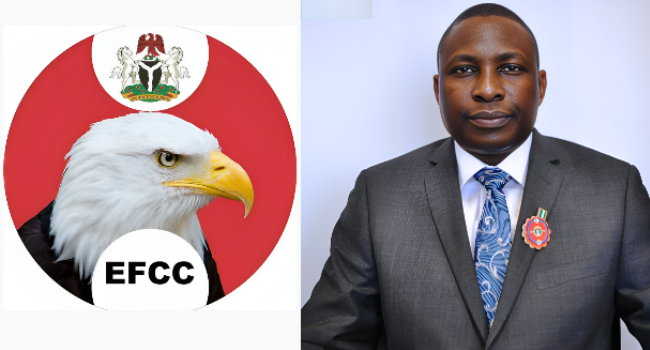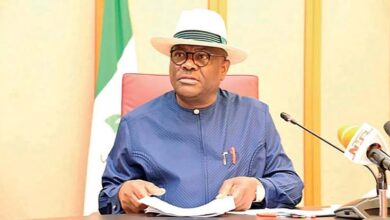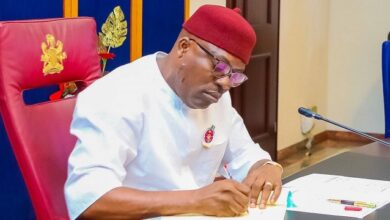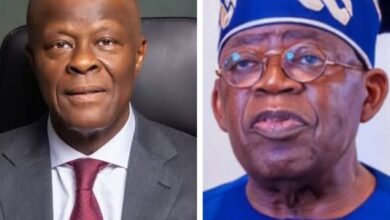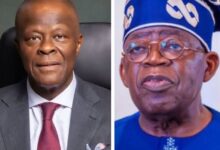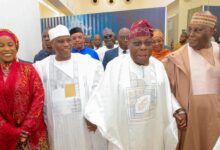Nigeria’s corruption crisis demands unyielding public scrutiny
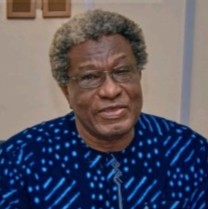
BY EMMAN USMAN SHEHU
“The spotlight is on, and it must burn brighter—on every stolen naira, every ghost contract, every bribe. This is not just about one administration; it’s about breaking a cycle of theft that has left Nigeria bleeding. The nation’s forebears fought colonial chains; today’s fight is against homegrown kleptocrats”.
Nigeria’s political class, particularly under President Bola Ahmed Tinubu’s administration, has turned governance into a masterclass in plunder, siphoning public wealth while ordinary citizens choke on the fumes of economic despair. The phrase “successfully spotlighted” isn’t just a rallying cry—it’s a verdict. Daily, the rot of corruption has been exposed, and it’s time for Nigerians to wield relentless public scrutiny as a weapon against a ruling elite that thrives on impunity. This isn’t about reformist rhetoric or cosmetic resignations; it’s about dismantling a system that has normalized theft at the highest levels. The stakes—Nigeria’s survival as a functioning state—could not be higher.

Consider the evidence piling up like unpaid debts. In 2024, the Organized Crime and Corruption Reporting Project (OCCRP) named Tinubu the third-most corrupt figure globally, a badge of shame earned through allegations of enabling systemic graft. The Nigerian National Petroleum Corporation (NNPC), the country’s economic lifeline, was rocked by a $1.5 million embezzlement scandal implicating top security aides and its CEO, yet accountability remains elusive. Then there’s Atiku Bagudu, Tinubu’s choice for Minister of Budget and Economic Planning, a man tied to the recovery of Sani Abacha’s looted billions, now entrusted with Nigeria’s fiscal future—a move the U.S. government flagged as a continuation of “massive corruption.” These aren’t anomalies; they’re symptoms of a political culture where loyalty trumps integrity, and public office is a license to loot.
The latest embarrassment came in October 2025, when Geoffrey Uche Nnaji, Tinubu’s Minister of Innovation, Science, and Technology, resigned amid a certificate forgery scandal. Nnaji’s exit, framed as a response to “blackmail,” mirrors the Tinubu administration’s own playbook: dodge accountability, deflect with drama. It’s a grim echo of Tinubu’s own contested Chicago academic credentials, a controversy that lingers like a bad odor. Accepting Nnaji’s resignation was the bare minimum, a performative gesture that fails to address the deeper malaise: a cabinet stuffed with cronies whose qualifications often begin and end with allegiance to the “Jagaban.” On the same day, the Minister of Works could not answer a simple question about the cost of the highly-touted Coastal Highway Project, has been trailed by allegations of lack of transparency, from design to execution. Meanwhile, the Economic and Financial Crimes Commission (EFCC), meant to be the nation’s anti-corruption bulldog, is itself mired in scandal, with its 2023 suspension of its chairman raising suspicions of shielding Tinubu’s allies.
The numbers paint a dire picture. Transparency International’s 2024 Corruption Perceptions Index ranks Nigeria 140 out of 180 countries, a marginal improvement from 145 but a far cry from progress. A 2023 UNODC survey found 70% of Nigerians faced bribe demands, yet fewer reported consequences for refusing—a spark of resistance, but against a backdrop where corruption has gutted the economy. Chatham House notes that Nigeria’s GDP per capita, among Africa’s lowest, is eroded by graft, with 54% of the population—over 100 million people—living below $2 a day. Meanwhile, senators pocket N13 million monthly allowances as children go hungry, their school feeding programs—like Tinubu’s Renewed Hope initiative, relaunched in 2024—marred by allegations of diverted funds. This is not governance; it’s predation.
Tinubu’s August 2025 claim in Brazil that his reforms had “eliminated corruption” was met with deserved scorn. Clerics, activists, and citizens on platforms like X called it what it was: a brazen lie. Inflation, spiked by his policies, hit 34%, turning staples like bread into luxuries. The EFCC’s seizure of hundreds of properties in a massive graft case offers no solace when culprits remain unnamed, leaving Nigerians to wonder if it’s justice or just theater. Historical scandals—KBR, Siemens, MTN’s slashed fines—set the stage, but the current administration has refined the art of evasion, with probes fizzling and resignations substituting for prosecutions.
The public’s anger is palpable. On X, Nigerians vent about governors and local chairmen as the “real problem,” accusing Tinubu of manipulating the EFCC to protect his own. Activists like Malcolm Omirhobo demand capital punishment for economic saboteurs, a sentiment the Senate, complicit in budget padding, would never entertain. Even Nasir El-Rufai, facing a N432 billion probe, dismisses it as “elite envy,” as if corruption were a personality flaw rather than a crime. From the #EndSARS uprising to 2024’s “End Bad Governance” protests, Nigeria’s youth are done with platitudes. “The political class are the luckiest bastards,” one X user fumed, “but soon that luck will run out.” They’re right: the spotlight is on, exposing villas in Dubai, children in foreign schools, and a “godfatherism” that rigs elections like slot machines.
So, what must be done? Nigerians must harness this moment of exposure into a sustained campaign of accountability. Amplify every leak, from Nnaji’s forged degree to Bagudu’s Abacha ties, through X threads and street protests. Flood courts with Freedom of Information requests, challenging a judiciary where 61% of Nigerians suspect bribe-taking. Pressure international partners to tighten the noose—OCCRP’s list and U.S. asset freezes prove it can work. Boycott media outlets that sanitize this rot. And to Tinubu: your “no safe haven” pledge is hollow while looters hold office and NNPC funds vanish. Resignations like Nnaji’s are not enough; we demand trials, asset seizures, and a cabinet cleansed of cronies.
Nigeria’s political elite have long operated as if untouchable, but the people are waking up. The spotlight is on, and it must burn brighter—on every stolen naira, every ghost contract, every bribe. This is not just about one administration; it’s about breaking a cycle of theft that has left Nigeria bleeding. The nation’s forebears fought colonial chains; today’s fight is against homegrown kleptocrats. As strategist Baba Yusuf aptly put it, these leaders are the CEOs of a corruption value chain. Nigerians must demand more than promises—they must demand justice. The alternative is a future where hope is just another looted commodity.
*Dr Shehu is an Abuja-based writer, activist and educator


